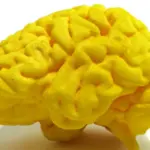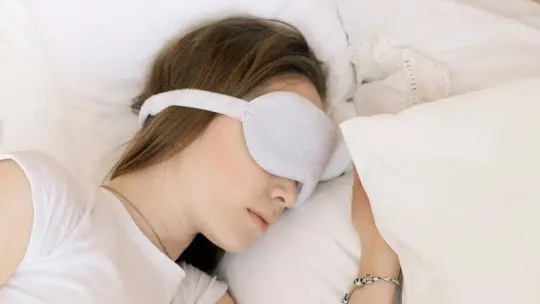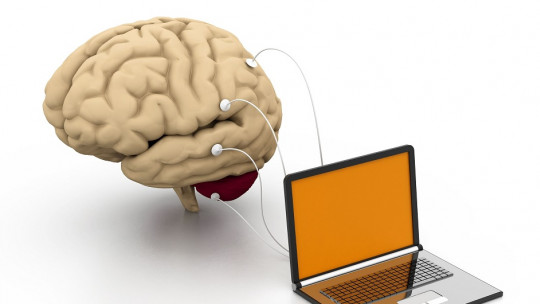Almost all people have experienced or will experience some episode of stress or insomnia throughout their lives.
However, although these two pathologies have things in common and can even occur together, the reality is that they have characteristics that make them very different. We are going to review all these qualities to better understand both concepts, through a summary of the differences between insomnia and stress.
What are the differences between stress and insomnia?
In order to know the differences between stress and insomnia, the first thing we must do is define each of these elements.
Stress is a physiological response to a threatening situation, which can be specific or sustained over time so it would go from being an adaptive response, in the first case, to a pathology, in the second, which can have consequences for the physical and mental health of the person who suffers from continued stress.
In fact, there is a classification between different types of stress in which its origin is distinguished and therefore the usefulness of the organism’s physiological reaction. In the first case, We would talk about positive stress, or eustress, in which our body prepares to face a situation that requires extra effort. The other typology would be negative stress, or distress. In this case, the physiological activation exceeds the levels of our balance, and that is when the negative symptoms appear.
To continue distinguishing the differences between stress and insomnia, we are now going to define the second element. Is about a sleep disturbance that can manifest itself in various ways , either as difficulty falling asleep at the beginning of the night, having a light sleep that causes us to wake up repeatedly, or waking up very early and no longer being able to go back to sleep. As with stress, insomnia can appear as an isolated episode, for different reasons, or manifest itself in acute and even chronic phases, the longer it lasts over time.
Although it may seem like a minor problem, Insomnia can have very serious repercussions on the person who suffers from it. , if the situation is not corrected in time, since lack of restorative sleep over a continuous period can cause consequences at an organic, psychological level and in all areas of the subject’s life. To avoid reaching this situation, there are different therapies with a good degree of effectiveness, although logically, the best solution will be to go to the root of the problem and tackle it.
Stress as a cause of insomnia
One of the differences between stress and insomnia is that one can often precede the other. The most common way for this to happen is that it is a continued stress situation that also ends up leading to sleep disturbance and therefore the dreaded insomnia. And it is that Stress can present a very broad symptomatology, mostly with indicators of anxiety but also depression, a decrease in the ability to concentrate, and difficulties in getting a restful sleep.
In this case, it would be important to take measures to alleviate the effects of insomnia and resolve it as soon as possible, because without adequate rest, the rest of the treatments applied will hardly have an effect. But, with stress being the cause of sleep disturbance, it is logical to assume that The best way for this to end up subsiding is precisely to act against the situation that is creating this stress maintained over time. so that, once the threat has disappeared, physiological activation levels are reduced.
Of course, this is not always simple and unfortunately we often face stressful situations in our daily lives, at work, in our family relationships that to a certain extent are beyond our control. The key to being able to deal with them would be the attitude with which we face them, and many times adequate psychological treatment can provide us with the tools we need to be able to assume life situations without them being so stressful.
And many situations are not stressful in themselves, but depend on the circumstances of each person and their personal characteristics, their learning history, etc. Therefore, if we learn to manage a situation that, at first, seems threatening to us, but that With adequate training we are able to manage without suffering excessive physiological activation. it is assumed that we will facilitate the disappearance of all the symptoms, and with it, the insomnia.
Insomnia as a cause of stress
Continuing along the lines of discovering the differences between stress and insomnia, we also find another situation, less common, but also possible. And sometimes Insomnia may be the first factor to appear and this causes a situation in the patient that facilitates the emergence of stress. so we would be talking about a situation that is the opposite of the previous case, and therefore the way to tackle it would also be different.
In this case, having continuous problems sleeping could translate, among other things, into a high level of anxiety and frustration, since the lack of rest would make us have problems facing situations that at other times would not present any challenge, due to the decrease in resources that our organization would have to manage different events. This could end up causing the dreaded stress to appear, and therefore be a consequence of insomnia, and not a cause.
But many times events are not so linear, but vicious circles are established in which an imbalance in the person’s life generates both disorders, either at the same time, or because one triggers the other and at the same time they feed off each other. It seems complicated, but it is actually very common. A person who begins to experience high-demand situations could begin to suffer from stress, and this could trigger sleeping problems. insomnia appearing.
But in turn, this insomnia would take away resources for stress management that was already causing many difficulties, which would aggravate this physiological activation, and therefore so would the symptoms, including insomnia. It is evident that this is a situation that cannot be maintained over time, since the physical and mental wear and tear that it entails for the subject is enormous, constant and increasing. He will therefore need both medical and psychological help to return to stability.
Several of the differences between stress and insomnia have then become clear, and it is the pattern of appearance between both one of the pathologies may precede the other, present separately, or appear at the same time and cause one to aggravate the situation of the other, this being the most delicate of all possible situations and the one that requires earlier attention. and more effective to put an end as soon as possible to the feedback spiral that has been entered.
The use of cannabinoids to treat insomnia and stress
In reference to the most severe cases of stress combined with insomnia, studies have been carried out to evaluate the usefulness of the use of cannabinoids in reducing all these symptoms.
Specifically, we will focus on the study by Próspero et al, from 2011, carried out in Mexico. On this occasion we worked with laboratory rats, in which a state of chronic stress was induced through a chemical process. To do this, they were injected with a dose of dexamethasone while they were pregnant.
In this way, the offspring were born with a peculiar condition, which is that when faced with a stressful stimulus, they acted disproportionately, so it could be said that they had acquired an attitude of avoidance towards risks. Next, a process began by which the state of chronic stress and insomnia that they were looking for in order to carry out the experiment was achieved, and then endocannabinoids were applied to be able to observe the effects on pathologies.
What was observed was a notable decrease in the symptoms that had previously been generated, so the authors conclude that this element played a fundamental role in the improvement of stress and insomnia due to emotional causes (which is caused by stress), Therefore, they invite us to continue researching in order to find another method, in this case pharmacological, that helps people who suffer from these problems in their daily lives.









